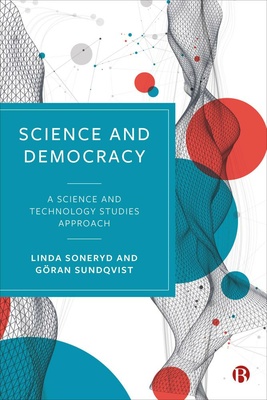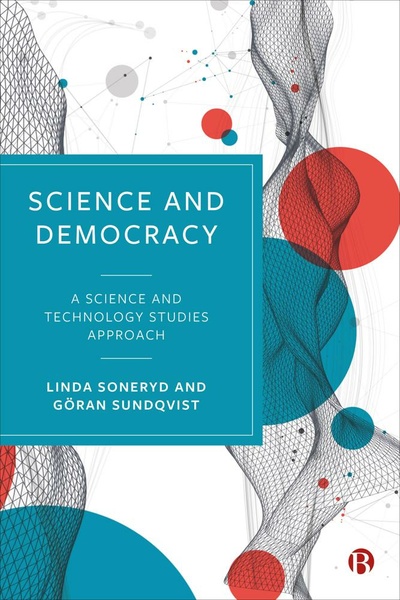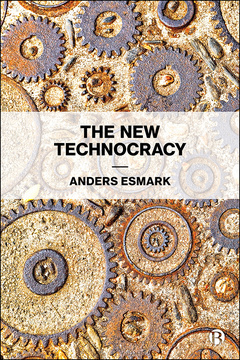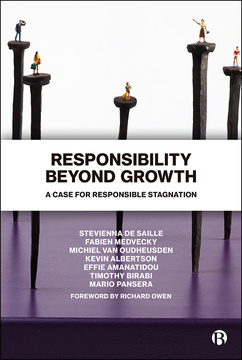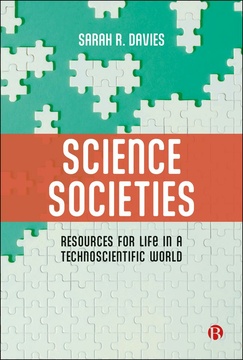Science and Democracy
A Science and Technology Studies Approach
By Linda Soneryd and Göran Sundqvist
Published
Sep 29, 2023Page count
208 pagesISBN
978-1529222142Dimensions
234 x 156 mmImprint
Bristol University PressPublished
Sep 29, 2023Page count
208 pagesISBN
978-1529222135Dimensions
234 x 156 mmImprint
Bristol University PressPublished
Sep 29, 2023Page count
208 pagesISBN
978-1529222166Dimensions
234 x 156 mmImprint
Bristol University PressPublished
Sep 29, 2023Page count
208 pagesISBN
978-1529222166Dimensions
234 x 156 mmImprint
Bristol University PressThis accessible book introduces students to perspectives from the field of science and technology studies.
Putting forward the thesis that science and democracy share important characteristics, it shows how authority cannot be taken for granted and must continuously be reproduced and confirmed by others. At a time when fundamental scientific and democratic values are being threatened by sceptics and populist arguments, an understanding of the relationship between them is much needed.
This is an invaluable resource for all who are interested in the role of scientific knowledge in governance, societal developments and the implications for democracy, concerned publics and citizen engagement.
"In a world of climate change and massive investment in AI, technoscience remains a powerful force. With what consequence for politics and society? With great patience and clarity, this book outlines the answers that science and technology studies have provided during the last 50 years." Noortje Marres, University of Warwick
Linda Soneryd is Professor of Sociology at Örebro University and Research Director at Score, Stockholm Centre for Organizational Research.
Göran Sundqvist is Professor of Science and Technology Studies at the University of Gothenburg and Professor at CICERO Center for International Climate Research, Oslo.
1. The Best Knowledge and the Best Mode of Governance
Part 1: Separation
2. Science and Politics as Separate Domains
3. The Relationship between Science and Politics
Part 2: Overlap
4. Close but Not Too Close
Part 3: Co-production
5. Co-production of Scientific Knowledge and Societal Order
6. Participation as Co-production
7. Scientific Citizenship
8. What Can Science and Technological Studies Say about Science and Democracy?







